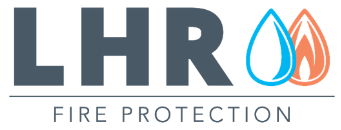Selecting the right fire alarm system for your facility is crucial to ensuring the safety of your premises and compliance with fire safety regulations. This comprehensive guide will help you understand your needs, choose the appropriate components, and highlight the importance of professional installation and maintenance. Whether you manage a small building or a large complex, the right system can make all the difference in emergencies, providing peace of mind through enhanced security and protection.
Understanding Your Facility’s Unique Needs
To make an informed decision about a fire alarm system installation, it’s important to evaluate several factors that are unique to your facility carefully:
- Size and Layout: The overall square footage and the specific layout of the building will determine the complexity and type of fire alarm system required. Larger buildings may need more comprehensive systems with multiple control points.
- Occupancy: The capacity of the building, or how many people it regularly accommodates, impacts the design and functionality of the fire alarm system. Higher occupancy levels typically require more sophisticated systems to ensure safe evacuation.
- Special Hazards: Some facilities, especially those dealing with flammable materials or hazardous chemicals, require advanced fire detection and suppression capabilities to address these increased risks.
- Local Fire Codes: Compliance with local fire safety regulations is mandatory. These codes vary by location and ensure that the fire alarm system meets all required safety standards.
Key Components of a Fire Alarm System
Understanding the key components is essential when selecting from different fire alarm system types. Each component plays a vital role in ensuring the system’s effectiveness and reliability:
- Fire Detectors: These devices are critical for early detection of fires and include:
- Smoke Detectors: Available in ionization and photoelectric types, each designed to detect different kinds of smoke particles.
- Heat Detectors: These detectors come in fixed-temperature and rate-of-rise variants to sense abnormal temperature increases.
- Combination Detectors: These units combine both smoke and heat detection to provide a more versatile response to various fire conditions.
- Control Panels: This is the central hub of the fire alarm system, monitoring signals from various detectors and initiating alarms when necessary.
- Notification Appliances: These include audible alarms (like horns and bells) and visual alarms (like strobe lights) that alert occupants to the presence of a fire, facilitating prompt evacuation.
- Manual Pull Stations: Strategically placed throughout the facility, these allow individuals to trigger the fire alarm system manually, ensuring rapid response to emergencies.
Factors to Consider When Choosing a System
When choosing a fire alarm system for effective fire prevention, consider these key factors to ensure that your selection meets the needs of your facility:
- Sensitivity: The system must be sensitive enough to detect fires early, minimizing damage and increasing safety.
- Reliability: The system must be reliable and easy to maintain, reducing the likelihood of failures and false alarms.
- Scalability: As your facility expands or changes, the fire alarm system should be capable of adjusting to new conditions without extensive overhauls.
- Cost: Consider both the initial investment and the ongoing maintenance expenses. A cost-effective system should balance upfront costs with long-term reliability.
- Integration with Other Systems: To enhance overall safety and efficiency, the fire alarm system should integrate seamlessly with other critical building systems, such as security and HVAC.
Professional Installation and Maintenance
Proper installation and maintenance are crucial for the performance of your fire alarm system:
- Certified Technicians: Installation should be carried out by accredited technicians trained to handle the specific complexities of fire alarm systems. Their expertise ensures the system is installed according to industry standards and local regulations.
- Regular Inspections and Maintenance: Regular inspections and maintenance are necessary to keep the system in optimal condition. This routine care helps to identify and fix issues before they lead to system failures.
- Testing and Inspection: Regular testing and inspections are vital to confirm that all fire alarm system components are functioning as intended. This practice helps ensure the system’s reliability in emergencies.
Essential Fire System Selection Insights
Choosing the right fire alarm system is a crucial investment in the safety and security of your facility. By understanding the essential components and factors for consideration, and ensuring professional installation and maintenance, you can equip your facility with a reliable and efficient fire alarm system. This proactive approach not only safeguards your property but also protects the lives of those within the facility.
For expert guidance and installation, contact LHR Fire Protection today and ensure your facility has the best fire protection available.



